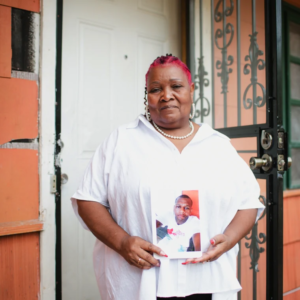Rep. Cori Bush (D-Mo.) on Wednesday unveiled a resolution urging the federal government to provide reparations to descendants of enslaved Africans and people of African descent.
Bush said at a press conference alongside Democratic Reps. Barbara Lee (Calif.), Jamaal Bowman (N.Y.) and Rashida Tlaib (Mich.) that the measure would support previously proposed legislation for reparations and back efforts at the state and local levels.
“Black people in our country cannot wait any longer for our government to begin addressing each and every one of the extraordinary bits of harm it has caused since its founding, that it continues to perpetuate each and every day all across our communities all across this country,” Bush said.
Slavery and discrimination, she added, are not “minor or insignificant” parts of American history.
“Our country was not founded on the principle that all people are created equal. It was founded at the expense of the lives, freedoms and well-being of Black people, African folks who they stole, whose enslavement, exploitation and dehumanization were written into the Constitution.”
Advocates often point to the discrimination that persisted after the Emancipation Proclamation — such as Jim Crow, discriminatory housing policy and disparities in the justice system — that relegated Black Americans to second class citizenship.
Bush’s Reparations Now resolution comes after California’s Reparations Task Force approved this month a series of proposals to pay each descendant of slavery living in the state up to $1.2 million.
But the discussion around reparations has been ongoing since the end of slavery.
In 1865, General William T. Sherman drafted Special Field Order No. 15, commonly referred to as 40 acres and a mule. Under the order, Confederate land seized in Georgia and South Carolina had to be split among formerly enslaved Black people in those states, with no more than 40 acres given to each family. That order was never carried out.
In 2019, the NAACP released a resolution calling for reparations and detailing the continued harm of slavery and discrimination. The resolution also outlined what should be included in reparations, including a national apology.
But it was Evanston, Ill., in 2021 that became the first U.S. city to create a reparations plan for Black residents. Then in 2022, Harvard University established a $100 million fund for descendants of enslaved people.
Today, the legacy of slavery impacts 57 percent of Black Americans, according to Pew Research Center. All three Black lawmakers at the event Wednesday acknowledged their own ancestors’ connection to slavery.
“I stand here now thinking about my great-grandmother, Fanny Wilson, who was born in slavery in Galveston, Texas,” Lee said. “I’m thinking about … going to the west coast of Africa, going into the dungeon where our ancestors were held, chained, looking at that door of no return; thinking about all those who did not make it to America; thinking of all those who have died in those dungeons.”
“There’s no way that we can allow this movement not to go forward because it’s on their behalf that we’ve got to make this country live up to its breed of liberty and justice for all, and when I say for all this more perfect union will be more perfect [when] reparations have been instituted, implemented and developed for African Americans.”




